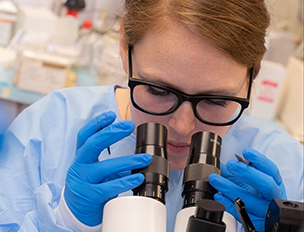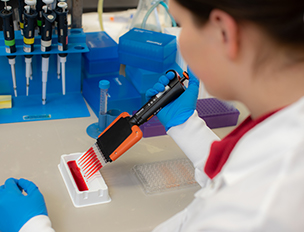Research
The Liver Pathobiology Laboratory focuses on the underlying mechanisms that result in liver cell apoptosis by studying a variety of pathways and diseases. The lab is examining the hypothesis that ductular reactive cells induce macrophage TNF-related apoptosis-inducing ligand (TRAIL) expression as a counter-regulatory process to limit their expression, and they are primed for cell death. This can be exploited therapeutically to attenuate cholestatic liver injury.
The specific aims of this project are to test these hypotheses:
- Does TRAIL or TRAIL receptor signaling limit the expansion of the death receptor cell population in cholestasis?
- Do death receptor cells promote TRAIL expression by macrophages?
- Are death receptor cells primed for cell death?

Focusing on signaling to develop targeted therapies, the lab is identifying how pathological activation of the Hippo pathway effector yes-associated protein (YAP) drives cholangiocarcinoma growth and chemotherapy resistance, and using preclinical models to test novel therapeutic strategies for this deadly disease.

A group in Dr. Gore's lab is studying the mechanisms that govern the development of nonalcoholic steatohepatitis (NASH), specifically, how cell-to-cell communication influences disease progression.